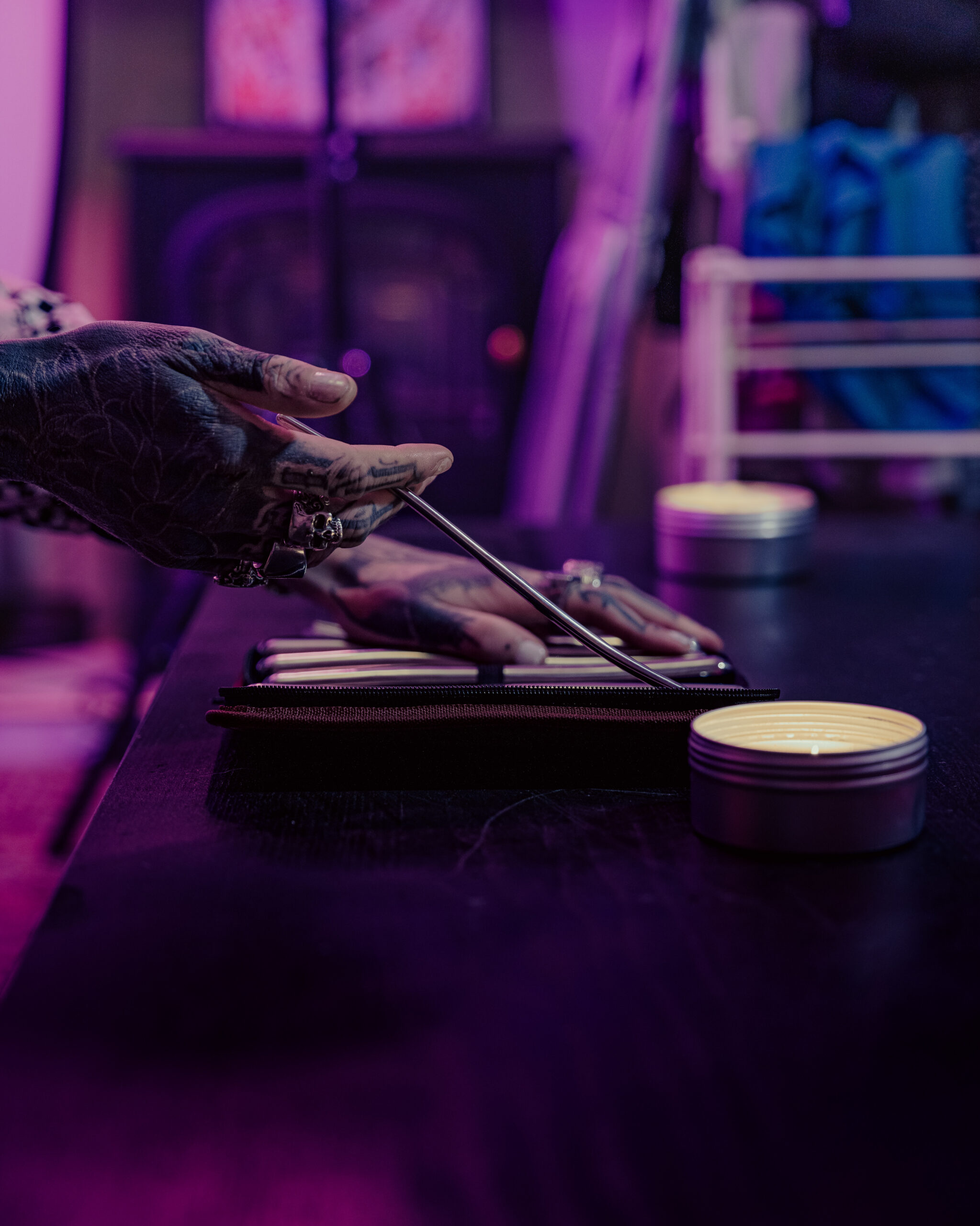Setting the Tone
In today’s society, it’s more important than ever to create inclusive spaces where individuals can openly discuss sensitive topics such as sex and love without fear of judgment or discomfort. This requires a thoughtful approach to setting the tone in these conversations, one that prioritizes respect, empathy, and understanding.
The Importance of Setting the Tone
When discussing sex and love, it’s easy for conversations to become heated or awkward, especially if not all participants feel comfortable sharing their thoughts. By setting a positive and inclusive tone from the outset, individuals can help create an environment where everyone feels valued and respected.
A good starting point is to establish clear expectations and guidelines for the conversation. This might involve agreeing upon ground rules for communication, such as active listening and respectful dialogue. It’s also essential to acknowledge that opinions and perspectives may vary widely, and that it’s okay if not everyone agrees on everything.
Clear Expectations for Respectful Dialogue
To foster respectful and open discussions about sex and love, it’s essential to establish clear expectations from the outset. This involves creating an environment where all participants feel comfortable, heard, and valued, free from judgment or fear of retribution. By doing so, we can encourage honest sharing, empathy, and a deeper understanding of each other’s experiences and perspectives.
Defining Boundaries and Safe Words
Clear expectations are crucial for respectful dialogue, especially when discussing sensitive topics like sex and love. Establishing ground rules beforehand can help create a safe and inclusive environment where all participants feel comfortable and respected. This includes defining boundaries and protocols for communication, such as using safe words or signals to indicate discomfort or need for a pause.
Defining boundaries is essential in any conversation, but particularly when discussing intimate topics. Boundaries help individuals communicate their limits and desires clearly, ensuring that all parties involved are on the same page. This can include discussions around consent, comfort levels, and what topics are off-limits. By setting clear boundaries, individuals can avoid feelings of discomfort, shame, or coercion.
A safe word or signal is a crucial component in creating an inclusive dialogue. A safe word is a pre-agreed upon phrase or gesture that indicates when someone needs to take a break or step away from the conversation. This can be especially helpful in situations where individuals may feel overwhelmed or uncomfortable, allowing them to communicate their needs without fear of judgment or interruption.
Safe words can also serve as a trigger for a “check-in” – a moment where all participants pause and assess whether the conversation is still respectful and enjoyable for everyone involved. This can help prevent situations from escalating and ensure that the conversation remains focused on mutual respect and understanding.
By establishing clear expectations, defining boundaries, and using safe words, individuals can create an environment that fosters open and respectful dialogue about sex and love. This approach acknowledges that these topics can be sensitive and complex, and seeks to prioritize comfort, consent, and inclusivity above all else.
Understanding Power Dynamics and Privilege
Power dynamics and privilege play a significant role in shaping our conversations about sex and love. When discussing these sensitive topics, it’s essential to acknowledge and address the power imbalances that can influence our interactions.
Privilege refers to the unearned advantages or benefits that individuals or groups receive due to their social position, identity, or characteristics. In the context of sex and love, privilege can manifest in various ways, such as cultural norms, socioeconomic status, education level, or physical ability.
Those who hold privileged positions may unintentionally or intentionally dominate conversations about sex and love, marginalizing those with less power. This can lead to a lack of representation, understanding, and validation for marginalized groups, hindering genuine connections and meaningful discussions.
Creating inclusive spaces requires acknowledging and addressing these power dynamics. By recognizing individual privileges and biases, we can work together to create environments where everyone feels comfortable sharing their thoughts and experiences.
This involves actively listening to and amplifying the voices of marginalized communities, providing opportunities for diverse perspectives, and fostering a sense of mutual respect and empathy. By doing so, we can build bridges that foster more open, honest, and inclusive conversations about sex and love.
Awareness of Microaggressions and Implicit Bias
Awareness of microaggressions and implicit bias can greatly impact our ability to create inclusive spaces for conversations about sensitive topics, including sex and love. When individuals from underrepresented groups feel that their opinions and experiences are dismissed, marginalized, or distorted, it can lead to feelings of isolation and exclusion. Implicit biases, often unconscious attitudes or stereotypes that affect how we perceive and interact with others, can also contribute to the creation of hostile environments where individuals feel uncomfortable expressing themselves freely.
Creating Space for Marginalized Voices
In order to create spaces where marginalized voices can feel heard and validated, it’s essential to be aware of microaggressions and implicit bias that can perpetuate oppression.
- Microaggressions are subtle, often unintentional comments or actions that convey a message of oppression or marginalization. They can take many forms, such as asking someone where they “really” fit into their identity (as if their identity isn’t already valid) or making assumptions about someone’s background or experiences based on their appearance.
- Implicit bias, on the other hand, refers to the unconscious attitudes or stereotypes that influence our perceptions and behaviors towards certain groups of people. For example, research has shown that people tend to associate women with caregiving roles and men with leadership roles, even if these biases aren’t explicitly stated.
- The impact of microaggressions and implicit bias can be significant. They can contribute to feelings of isolation, exclusion, and marginalization among already oppressed groups, making it more difficult for them to speak out or seek help when needed.
Creating inclusive spaces requires a commitment to acknowledging and challenging these biases. This means actively seeking out diverse perspectives and experiences, being mindful of one’s own language and assumptions, and creating safe spaces where marginalized voices can feel heard without fear of judgment or retribution.
- In conversations about sex and love, this might involve centering the stories and experiences of marginalized individuals, rather than relying on dominant narratives or stereotypes. For example, a conversation about healthy relationships might not only include discussions of romantic partnerships, but also explore ways that people build community and connection with others outside of traditional relationship structures.
- It’s also important to recognize that people’s experiences and identities are complex and multifaceted. Rather than reducing individuals to a single aspect of their identity, we should strive to understand the many ways in which they navigate the world and find meaning in their lives.
By creating spaces where marginalized voices can feel heard and validated, we can work towards building a more inclusive and equitable society. This requires ongoing effort and commitment, but it’s an essential step towards recognizing and valuing the diversity of human experience.
Using Inclusive and Respectful Terminology
Creating inclusive spaces for conversations about sex and love requires thoughtful consideration of language, culture, and individual differences.
When designing these spaces, it’s essential to prioritize respect and understanding towards diverse identities, abilities, and experiences.
Inclusive communication involves avoiding language that might be hurtful or alienating, such as using heteronormative or cisnormative terms. Instead, use person-first pronouns (e.g., “person with a disability” rather than “disabled person”) and inclusive vocabulary that acknowledges the complexity of human experiences.

Additionally, creating safe spaces for conversations about sex and love requires active listening, empathy, and a willingness to learn from others. This means acknowledging power dynamics, privilege, and the impact of social norms on individual choices and behaviors.
By fostering an environment where everyone feels comfortable sharing their thoughts and feelings, we can cultivate deeper understanding and more respectful dialogue about these complex topics.

Avoiding Stigmatizing or Triggering Language
When discussing sensitive topics like sex and love, it’s essential to prioritize inclusivity and respect. Certain words or phrases can evoke strong emotions, trigger past traumas, or perpetuate harmful stereotypes, leading to discomfort and exclusion. To create safe spaces for open conversations, it’s crucial to be mindful of the language we use.
Framing Conversations with Sensitivity to Identity
To create inclusive spaces for conversations about sex and love, it’s essential to approach these topics with sensitivity to identity and avoid stigmatizing or triggering language. Language has the power to either comfort or harm, and being mindful of this is crucial in fostering open and respectful discussions.
Using language that is free from stigma and judgment can help individuals feel more comfortable sharing their thoughts and experiences. Avoiding terms like “problem” or “addiction” when discussing sex can be particularly hurtful to those who have struggled with sexual health issues, as it perpetuates the idea that sex is a negative experience.

Instead of framing conversations around pathology or deficiency, consider using language that emphasizes pleasure, autonomy, and agency. For example, instead of saying “Someone’s having an affair,” say “That person has made a choice to engage in a non-monogamous relationship.” This subtle shift in language can help create a more positive and inclusive conversation.
Framing conversations with sensitivity to identity also requires being mindful of power dynamics. For instance, when discussing topics like sexual violence or consent, it’s essential to center the voices and experiences of survivors and marginalized communities. This means amplifying their stories and prioritizing their safety above all else.
Encouraging Active Listening and Empathy
In creating inclusive spaces for conversations about sex and love, it’s essential to prioritize active listening and empathy. When individuals feel heard and understood, they’re more likely to open up and share their thoughts and feelings, leading to a deeper understanding of each other’s perspectives.
Active listening involves fully engaging with the speaker, maintaining eye contact, and avoiding interrupting or judging. This creates a safe space for individuals to express themselves without fear of retribution or criticism. By doing so, we can better understand the nuances of their thoughts and feelings, and respond in a way that’s supportive and non-judgmental.
Empathy is also critical in these conversations. It involves putting ourselves in others’ shoes and trying to understand their experiences and emotions. When we practice empathy, we can create a sense of connection with others, which helps to build trust and rapport. This, in turn, allows us to have more open and honest discussions about sensitive topics like sex and love.

Furthermore, creating inclusive spaces for conversations about sex and love requires a willingness to challenge our own biases and assumptions. By acknowledging and working through our own feelings of discomfort or uncertainty, we can create an environment that’s welcoming and inclusive to all individuals.
By prioritizing active listening and empathy in these conversations, we can foster a culture of understanding and respect. This, in turn, allows us to have more meaningful and fulfilling discussions about sex and love, leading to stronger relationships and a greater sense of connection with others.
Fostering a Growth Mindset and Non-Judgmental Attitude
A growth mindset and non-judgmental attitude are essential components in fostering inclusive spaces for conversations about sex and love. By embracing a mindset that sees challenges as opportunities for growth, individuals can approach sensitive topics with curiosity and openness, rather than fear or defensiveness. This, in turn, creates an environment where people feel safe sharing their thoughts and experiences without fear of being judged or marginalized.
Addressing Uncomfortable or Taboo Topics
Creating Inclusive Spaces for Conversations About Sex and Love requires more than just being open-minded, it demands fostering a growth mindset and adopting a non-judgmental attitude.
A growth mindset allows individuals to approach conversations about sex and love with curiosity and empathy, rather than fear or defensiveness. It encourages them to view challenges as opportunities for growth and learning, and to be receptive to diverse perspectives and experiences. This mindset is essential in creating a safe and supportive environment where individuals feel comfortable sharing their thoughts and feelings.
A non-judgmental attitude is equally crucial in fostering inclusive spaces. It involves being aware of one’s own biases and assumptions, and making a conscious effort to separate personal opinions from the facts. By avoiding labels and judgments, individuals can create a culture where everyone feels valued and respected, regardless of their background or identity.
Addressing uncomfortable or taboo topics requires a high level of emotional intelligence, empathy, and self-awareness. It involves being able to navigate complex power dynamics, cultural differences, and individual differences in a way that is respectful and sensitive. By doing so, individuals can create spaces where everyone feels comfortable sharing their thoughts and feelings, without fear of being judged or rejected.

Inclusive spaces are not just about creating a comfortable environment for discussing sex and love, but also about promoting mutual understanding, respect, and acceptance. By fostering a growth mindset and adopting a non-judgmental attitude, individuals can create spaces where people from all walks of life feel seen, heard, and valued.
Regular Feedback and Reflection
Creating inclusive spaces for conversations about sex and love requires more than just a willingness to discuss these topics; it demands an environment where individuals feel comfortable, supported, and respected. Regular feedback and reflection are crucial components in fostering such a space.
Regular feedback allows participants to share their thoughts, feelings, and concerns without fear of judgment or repercussions. This enables the group to better understand each other’s perspectives, build trust, and create a culture of empathy.
- A well-structured feedback loop involves actively listening to individuals, acknowledging their experiences, and providing constructive suggestions for improvement.
- Reflection also plays a vital role in ensuring that conversations remain productive and respectful. By taking time to process and reflect on the discussion, participants can identify areas of misunderstanding or discomfort.
This iterative process allows the group to refine their understanding of each other’s needs, adjust their communication style, and create an environment where everyone feels valued and included. By prioritizing regular feedback and reflection, it becomes easier to navigate sensitive topics, build strong relationships, and cultivate a culture of open and honest conversation about sex and love.
Identifying and Addressing Power Imbalances
Power imbalances can subtly influence conversations about sex and love, leading to feelings of discomfort, exclusion, or even trauma for some individuals. These unaddressed power dynamics can be deeply ingrained in societal norms, cultural expectations, and personal relationships, making it challenging to create inclusive spaces for open discussion.
Continuously Improving the Conversational Environment
To create inclusive spaces for conversations about sex and love, it’s essential to identify and address power imbalances that can hinder open discussion.
Power imbalances can arise from various sources, including social norms, cultural backgrounds, and individual experiences. For instance, people who have been historically marginalized or oppressed may be reluctant to share their thoughts and feelings in a space dominated by those with more privilege and power. To address these power imbalances, it’s crucial to create a safe and non-judgmental environment where everyone feels heard and valued.
One way to achieve this is by establishing clear ground rules for the conversation, such as active listening, respect for differing opinions, and a willingness to learn from each other. This can help to build trust and foster a sense of safety among participants.
Another approach is to involve all participants in the decision-making process, ensuring that everyone has a say in how the conversation will unfold. This can be achieved by asking open-ended questions, encouraging diverse perspectives, and creating opportunities for everyone to contribute equally.
Continuously improving the conversational environment also requires ongoing effort and self-reflection. It’s essential to recognize and challenge one’s own biases and assumptions, as well as those of others, to create a space that is truly inclusive and respectful.
Furthermore, it’s vital to acknowledge that power imbalances can be both overt and subtle, and that they may affect people in different ways. By recognizing these nuances and being aware of the historical and systemic contexts that shape our conversations, we can work towards creating spaces that are more just, equitable, and inclusive.
Ultimately, creating inclusive spaces for conversations about sex and love requires a commitment to ongoing learning, growth, and self-reflection. By acknowledging power imbalances and working to address them, we can build trust, foster empathy, and create environments where everyone feels valued and respected.
Explore sexy cop outfits for a bold, confident look at Peaches and Screams Buy love rings for added pleasure at Peaches and Screams Shop G-Vibe toys for versatile and exciting experiences at Peaches and Screams Shop rechargeable cock rings for convenience and power at Peaches and Screams Buy flavoured lubes for fun and flavourful sex at Peaches and Screams Explore Sexy Christmas Gifts for Men for thrilling and personal gifts at Peaches and Screams
Prince and Flower Aron Marquez My Better Love Raindrops and Ribbons Critic Forever
- How Many Syringes Of Filler For Marionette Lines? - April 30, 2025
- Anti-Wrinkle Treatments Near Walton On The Hill, Surrey - April 29, 2025
- Baby Botox Treatments Near Sidlow Bridge, Surrey - April 29, 2025
